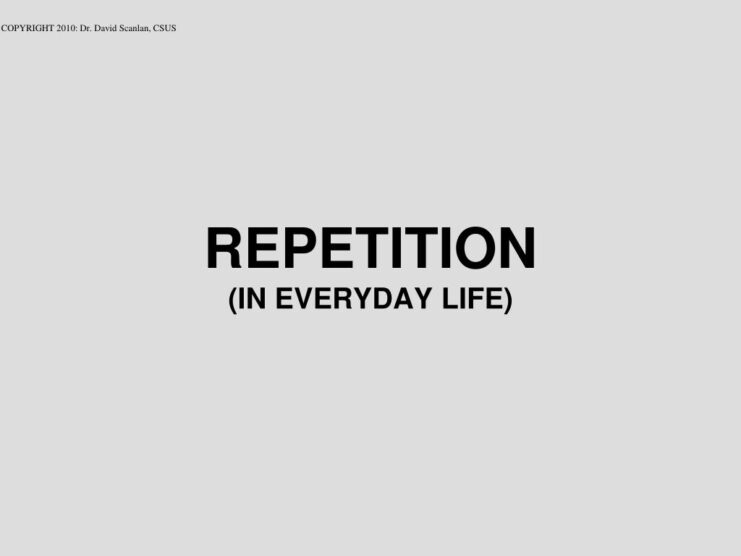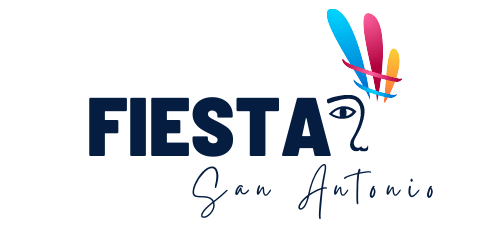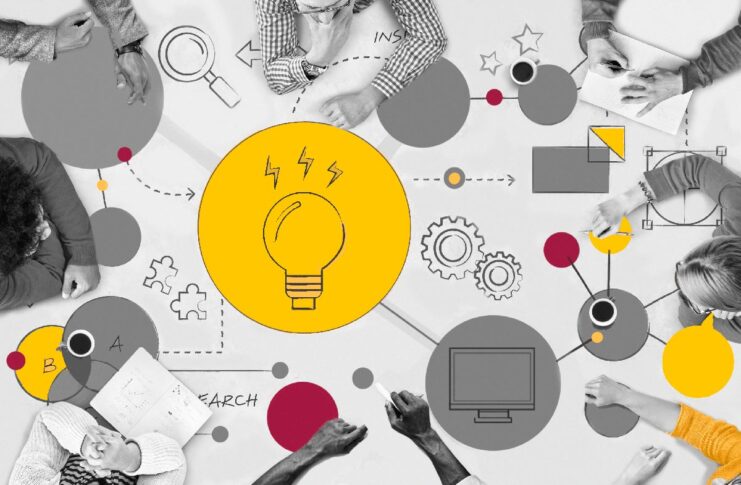Learning is a powerful tool that shapes our world and drives progress. But what if there was a secret sauce, a hidden ingredient that can turbo-charge the learning process?
Enter exponential learning, an approach that revolves around the potent magic of repetition.
Why is Repetition Important?

The brain, a complex organ, is malleable and continually evolving. This adaptability, known as neuroplasticity, underpins our ability to learn and grow. Repetition solidifies neural pathways, making the recalled information more accessible and the skills more reflexive.
When we encounter new information or practice a skill, our brain forms new connections. However, without repetition, these connections weaken and may fade away. Repetitive exposure and practice fortify these links, ensuring the knowledge or skill is cemented in our memory. Check out Gizmo to practice!
The Spaced Repetition System (SRS)
Memory isn’t just about repetition; it’s also about timing. SRS is a learning technique that involves increasing intervals of time between subsequent review of previously learned material. This method is highly effective because it taps into our cognitive structure.
When we first learn something, we quickly forget much of it. But with each repetition, especially if spaced out, we forget less and less. Over time, this compounds our retention, making the SRS approach a formidable tool for long-term learning.
Applications of Exponential Learning
Language Acquisition
One of the most practical applications of exponential learning is in mastering new languages. Vocabulary and grammar rules require constant repetition to become second nature. By systematically repeating words and structures, learners can expedite their fluency.
Many successful language learners utilize apps or platforms that employ the Spaced Repetition System. These tools present words and phrases at strategic intervals, ensuring maximum retention and minimizing the curve of forgetting.
Skill Development
From playing an instrument to mastering a new sport, skills need constant repetition to improve. It’s not just about practicing for long hours but practicing correctly and consistently. Deliberate, repeated practice ingrains the skills deeper, leading to expertise.
Tiger Woods didn’t become a golf legend overnight. His countless swings, adjusted and repeated, carved his name among the greats. Similarly, world-class musicians repeatedly practice scales, compositions, and techniques, refining their art over time.
How is It Useful in Everyday Life?

Repetition isn’t just for academic learning or skill acquisition; it plays a pivotal role in habit formation. Whether it’s exercise, meditation, or any other habit, consistency is the key. The more we repeat a behavior, the more ingrained it becomes, eventually forming a habit.
Charles Duhigg, in his book “The Power of Habit,” talks about the habit loop: cue, routine, and reward. By identifying these components and repeating the desired behavior, we can transform our daily habits, leading to profound changes in our lives.
Lifelong Learning
The world is changing rapidly, and lifelong learning has become a necessity. Using the power of repetition, you can continue to update and enhance your knowledge base. By setting aside a few minutes daily for revisiting old materials or learning something new, you create a cycle of continuous growth.
The beauty of exponential learning is that the more you do it, the easier it becomes. As you build your learning muscles through repetition, acquiring new knowledge or skills will become more efficient, allowing you to stay ahead in this fast-paced world.
Potential Barriers in The Process
Lack of Motivation
One of the most significant challenges to harnessing the power of repetition is a lack of sustained motivation. After the initial enthusiasm fades, repetition can feel tedious, making it tempting to give up or jump to something new.
It’s crucial to remember why you started the learning journey in the first place. Setting clear goals and regularly revisiting them can serve as a motivating factor. Visualization of the end result and celebrating small milestones can also keep the momentum going.
Burnout and Overwhelm
While repetition is key, overdoing it can lead to burnout. There’s a thin line between diligent practice and over-exertion. It’s essential to listen to one’s body and mind and take breaks when necessary.
The principle of “less is more” often applies here. Short, focused sessions of repetition, followed by rest, can be more effective than marathon sessions that lead to fatigue and decreased retention.
Tools and Techniques for Effective Repetition

Digital Flashcards
In today’s digital age, flashcards have evolved beyond physical paper cards. Platforms like Anki, Quizlet, and Chegg offer digital flashcards that leverage the Spaced Repetition System, making them invaluable tools for exponential learning.
These platforms allow users to customize their learning experience, adjusting the frequency and complexity of cards based on their progression. Plus, they can be accessed anytime, anywhere, fitting seamlessly into busy schedules.
Mind Mapping
Mind maps are visual tools that can represent and categorize information, making them perfect companions for repetition-based learning. By revisiting and expanding upon a mind map regularly, learners can reinforce their understanding and discover connections between different pieces of information.
Software like XMind, MindMeister, or Coggle offers interactive mind mapping capabilities, allowing users to build, modify, and share their maps, thus incorporating the principle of repetition visually and effectively.
Integration with Augmented Reality (AR)
The future of repetition in learning looks promising with advancements in technology like Augmented Reality (AR). Imagine practicing a physical skill with real-time feedback through AR glasses or revisiting historical events by virtually experiencing them.
Such immersive experiences can supercharge the repetition process by making it more engaging and contextually relevant, thus enhancing retention and understanding.
AI-Powered Personalized Learning

Artificial Intelligence (AI) is set to revolutionize the way we approach repetitive learning. With AI algorithms analyzing a learner’s pace, retention rate, and preferences, it can customize the repetition intervals, ensuring optimum engagement and results.
Platforms harnessing AI can pinpoint areas of weakness and provide targeted repetition exercises, making the learning process more efficient and tailored to individual needs.
Conclusion
The realm of exponential learning is vast, with repetition at its core. While the journey might seem daunting initially, with persistence and the right techniques, one can master any skill or subject. The age-old adage remains true: Practice makes perfect. So, embrace repetition, and embark on a transformative journey of self-improvement and growth.

